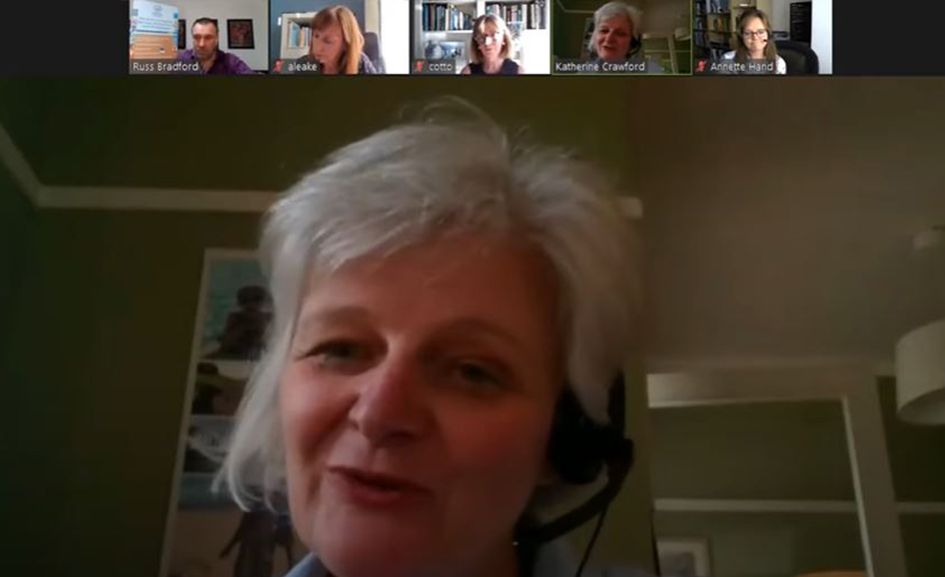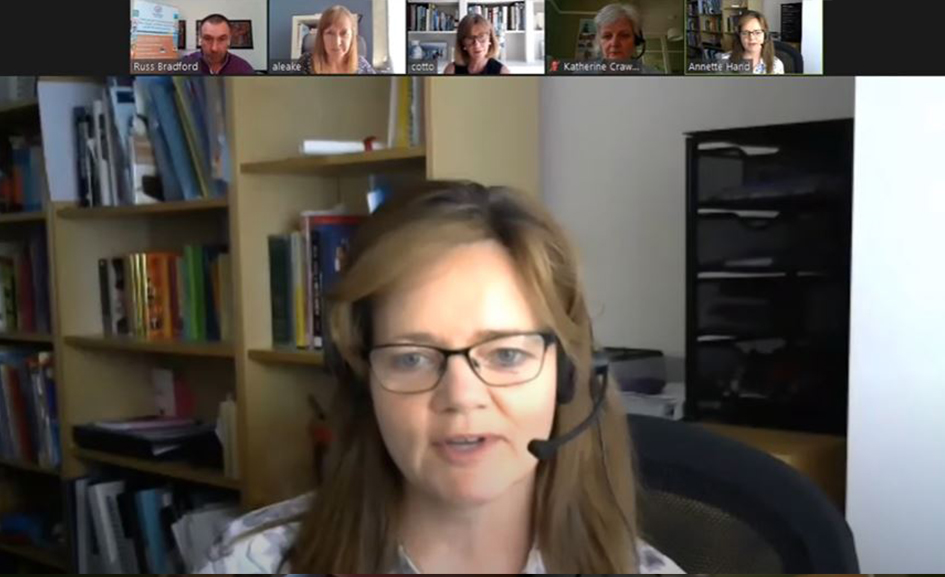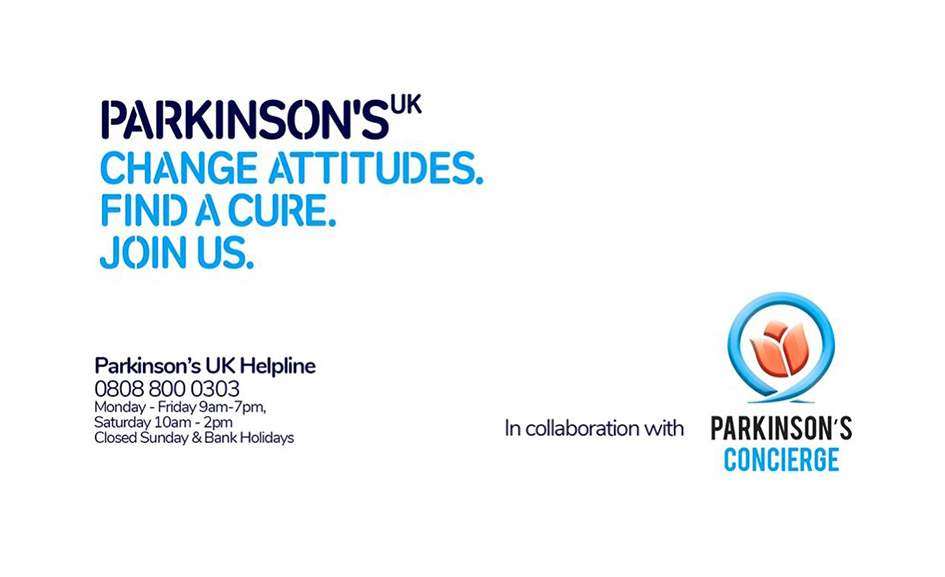Russ Bradford, from Parkinson’s Concierge and Katherine Crawford, from Parkinson’s UK, were joined by Dr Annette Hand, Patsy Cotton, and Alison Leake.
What is the Government Advice for Someone with Parkinson’s?
The government’s advice at this time is for people with Parkinson’s to stay home. Annette added that if you do need to go out, be sure to maintain a 2-metre distance from others and regularly wash your hands.
Parkinson’s is currently classified as a moderate risk for becoming seriously ill with coronavirus. If you also have other health conditions which make you extremely vulnerable to the virus you will have received a letter or text from the NHS about shielding.
If you require assistance with accessing medicines, Alison pointed out that the NHS volunteer responders will be able to help you. Similarly, the Parkinson’s UK local advisors will be able to direct you to pharmacies which will deliver your prescription to your home. If you need other local assistance, such as reaching a neurologist or nurse if you are unable to, contact Parkinson’s UK through their helpline, on 0808 800 0303.

Managing Mental and Physical Symptoms while Staying at Home
Your mental health ties in a lot with your physical health, Patsy told us. Please remember that in these uncertain times, anxiety and low mood are completely normal. Routines have changed and if others are doing shopping for you your diet may have changed too, which can have an impact on the effect of medication. We also don’t realise quite how much social contact we usually have in a day. These factors can all affect our mental health, and lower energy levels mean that muscles may be stiffer because of this.
Staying hydrated, eating healthily and getting enough sleep are all essential for good mental health. It’s also important to limit alcohol intake and smoking, while increasing exposure to natural sunlight. Patsy suggested finding a new activity to distract yourself, as people are sometimes less aware of their symptoms if they’re involved and engaged. “We all have talents that perhaps we don’t explore; I’d really encourage you to try something that you enjoy”.
Exercise is crucial for managing symptoms, as a lack of physical exercise can progress Parkinson’s more rapidly. Parkinson’s UK have published advice on staying active at home and managing your mental health while staying at home. Additionally, the charity Mind have put together some guidance on wellbeing.

Consultations during the COVID-19 Pandemic
We know that lots of members of the community have had queries about how consultations will work; the three nurses were all very keen to share the benefits that video consultations have.
While it is still urgent to see some patients face-to-face, such as those in the early stages of Deep Brain Stimulation treatment, most assessments can be done over video call. Annette confirmed that her organisation has been conducting many video consultations and that virtual assessments have allowed nurses to see people faster than if they had to go into the clinic. The consultations can happen at any time, meaning that they can occur when the person with Parkinson’s needs it and not strictly within the clinic’s hours. In addition, having virtual assessments frees up clinic spaces so that longer conversations can be had with those who need them. Annette added that often when people come into the clinic they are ‘on their best behaviour’, taking their medication at the right times and generally performing well. Having video consultations allows the nurses to observe people’s symptoms while at home, which really makes a difference. Finally, coming into the clinic can often be really stressful for people with more advanced Parkinson’s and also for their loved ones. Being able to see a nurse from the comfort of their home is highly advantageous.
Most assessments can be done through video consultation, such as looking at finger taps, hand movements, tremors, gaze, writing, facial expression, speech and movement. The only thing which can’t be assessed is rigidity, as the nurses are unable to physically touch the muscles to make an assessment. All three nurses shared hopes that the national move towards this form of consultation can be something positive to take from the situation in which we currently find ourselves. However, they would also like to hear from the Parkinson’s community to find out if you prefer this form of consultation and what benefits you the most.

Feedback Project on the Value of Parkinson’s Nurses
Annette is working with Sarah Brown from Northumbria University to evaluate the scope, value and efficiency of specialist nurses working in the field of Parkinson’s. Annette informed us that often, healthcare trusts will not fund a project unless there is evidence behind it. Currently, no work has been carried out to provide evidence for the value of Parkinson’s nurses.
They have put together the USP project, which is a survey for people affected by Parkinson’s, by diagnosis or as family members. It is a 45 minute survey to find out what the most important aspects of the role of a Parkinson’s nurse are; what skills and attributes would you like to see and how the nurses can support you and your loved ones. You can find out more about the USP project on the Parkinson’s UK website.